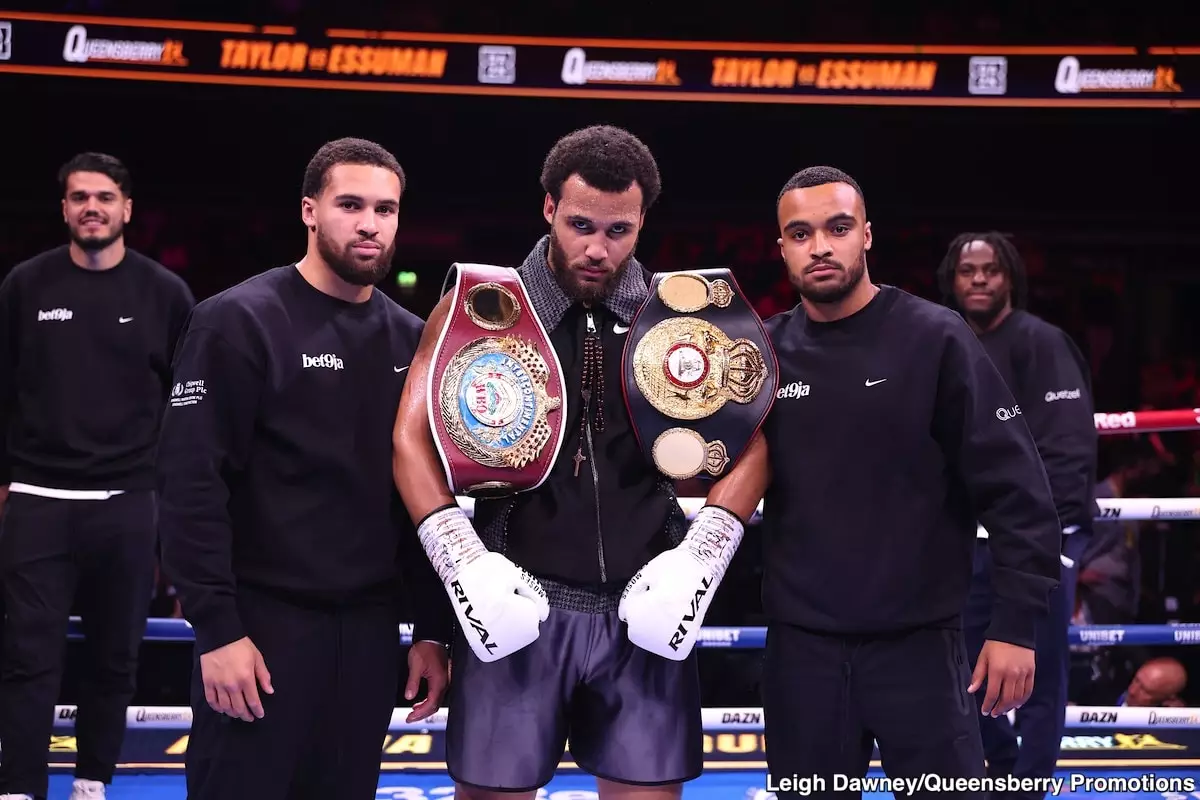Moses Itauma, a talented heavyweight with an impressive record of 12 wins and 10 knockouts, recently made headlines after being elevated to the #1 position in the World Boxing Organization’s (WBO) heavyweight rankings. This shift occurred following his decisive second-round knockout of veteran fighter Mike Balogun during a bout at the SSE Hydro in Glasgow, Scotland, on Saturday night. While the excitement surrounding the elevation of a 20-year-old prospect is palpable, a closer look at the circumstances reveals a disconcerting trend in boxing: the premature promotion of untested fighters based on inflated records rather than quality opposition.
The Basis for Criticism
The announcement by WBO President Gustavo Olivieri spurred immediate backlash from boxing enthusiasts. Critics swiftly pointed out that Itauma has not faced any formidable foes throughout his two-year career. His most notable victories include Balogun—who at 36 years old has no significant accolades—Demsey McKean, recently returning from a knockout loss and a year-long layoff, and Mariusz Wach, a 45-year-old journeyman in the twilight of his career. The glaring lack of competitive matches raises serious doubts about the merit of Itauma’s sudden rise to the top.
Compare Itauma’s lightweight accomplishments to the seasoned fighters he should be matched against before earning such high rankings, like Agit Kabayel, Martin Bakole, or Filip Hrgovic. These fighters represent a level of challenge that Itauma has yet to encounter, making his current ranking seem unwarranted. This move to #1 by the WBO, rather than simply an oversight, reflects a broader issue within the sport where promotional companies and sanctioning bodies tend to push their prospects too rapidly, often at the cost of integrity within the rankings.
The Illusion of Stardom
In an interview reflecting on his victory over Balogun, Itauma expressed a surprising level of confidence, suggesting that he felt he was already among the elite in the heavyweight division. His claim, “I had to try my best to get him out of there, which I did,” conveys a sense of accomplishment that belies the reality of the fighters he has faced. The disconnect between his words and the actual merit of his accomplishments poses a philosophical question about what it means to truly earn a champion’s title in boxing today.
This inflated self-perception may not only mislead the young fighter himself but can also warp public opinion about his capabilities. In the grand tapestry of boxing, where the greats are often forged in the fires of high-stakes competition, Itauma’s rapid ascension might serve more as a distraction than a reflection of skill. Moreover, Itauma’s brother, Karol, experienced a similar rise before faltering against a reputable journeyman, adding further scrutiny to the family’s ability to handle serious competition.
Calls for Measured Progression
Itauma acknowledged the importance of stepping up his competition, stressing the necessity of “doing it correctly.” His remarks hint at an awareness of the pitfalls of facing lesser opponents too frequently, a cardinal sin that can leave young fighters unprepared for the rigors of higher-stakes encounters. The boxing community should advocate for a system that fosters genuine talent through rigorous matchmaking rather than relying on superficial records and rankings. Fans deserve authentic clashes in the ring instead of artificially inflated narratives.
He addressed the need to venture into America eventually, highlighting an understanding of both the significance and prestige tied to fighting in well-known venues. However, this ambition must be met with an appropriate foundation of skill, proving he can take on and defeat elite-level challengers before making a bid for the mainstream spotlight.
The Future of Heavyweight Boxing
Moses Itauma’s case raises critical conversations about the direction of heavyweight boxing and the standards imposed by organizations like the WBO. With social media and instant reactions, the public discourse surrounding rankings can have far-reaching implications for a fighter’s career. A push for reconsideration of what constitutes legitimate achievements is needed to maintain the sport’s honor. The grass-roots of boxing fans must reflect their skepticism constructively, demanding transparency and fairness in how fighters are matched and promoted.
As young talents emerge, the burden lies in balancing marketability with a quest for greatness. While the boxing world eagerly anticipates the advent of new stars like Itauma, the sport’s integrity must remain intact, ensuring that each step taken is a genuine reflection of a fighter’s capability and effort within the ring.


Leave a Reply